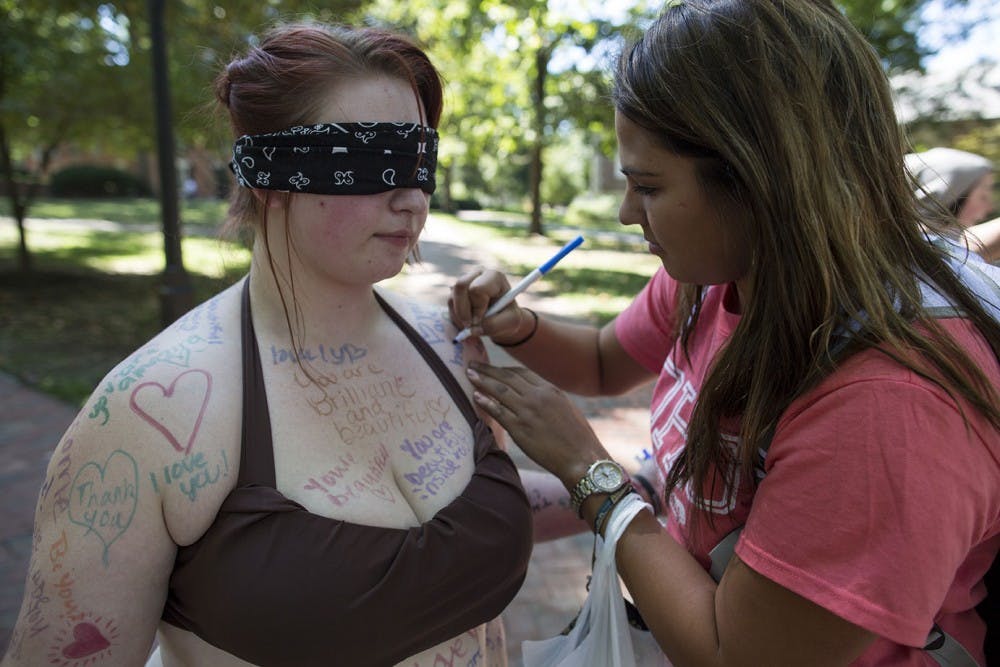When Sam Houtchens watches a movie and sees women with “perfect bodies and abs,” she sometimes asks herself, “Am I supposed to look like that?”
Houtchens, a freshman studying integrated media, thinks almost everyone struggles with their body image.
“In today’s society, we see all these magazine articles of women and men who are clearly photoshopped, but we think that’s how we’re supposed to look,” Houtchens said. “And if we don’t look exactly like that, we’re not attractive.”
Body positivity is an issue many college students struggle with, Rebecca Cherry, the president of the Positivity Project, said. Body positivity is the idea of having a positive, comfortable view about one’s body. There are advertisements and steps being made to improve people’s self-image.
The Positivity Project is a student organization started last spring to promote eating disorder awareness and body positivity, Cherry, a senior studying psychology, said.
One company that had a powerful campaign about body positivity was Dove, which made the “Real Beauty Sketches | You’re more beautiful than you think” campaign in 2013, Alexa Fox, an assistant professor in the marketing department who teaches consumer behavior, said. It featured women who described the way they look to a forensic composite artist, and then strangers who talked to the women describe their features. The second sketch of the person was much more pleasant and overall more beautiful, and the campaign reflected how many women view themselves more critically than others do.
“I think it’s an excellent example of how women don’t necessarily give themselves enough credit,” Fox said. “But they don’t always see what other people see in them in terms of external beauty and also internal beauty as well.”
A significant number of people on campuses suffer from eating disorders, Cherry said, and the data only includes those who have reported it. Forty percent of female college students have an eating disorder, and 91 percent have attempted to control their weight through dieting, according to the Walden Center for Education and Research.
From Sept. 26-30, the Women’s Center, the Women’s Panhellenic Association and the Positivity Project hosted “Love Yourself Week,” which included several events highlighting the importance of self-image and body positivity, according to a previous Post article. The Positivity Project also put up sticky notes with compliments written on them onto bathroom mirrors.
“I think in our society, unfortunately, we focus so much on physical appearance,” Cherry said. “I feel like we can really use it to our advantage with body positivity and just realizing that our flaws makes us who we are and just appreciating that, with men and women, is really important.”
This semester the organization is focusing on eating disorder awareness, and next semester it is focusing on how relationships can impact body positivity, Cherry said.
“In our culture, I’ve noticed that it’s normal to bash on our bodies or our character instead of appreciating ourselves,” Cherry said.
The Positivity Project will host a chalk art competition Friday Nov. 11 on South Beach to bring awareness to eating disorders and body positivity.
“I’m hoping when people walk by, someone who is suffering from disordered eating or problems with excessively exercising, or just body positivity problems in general, might benefit from seeing support from the community,” Cherry said.






